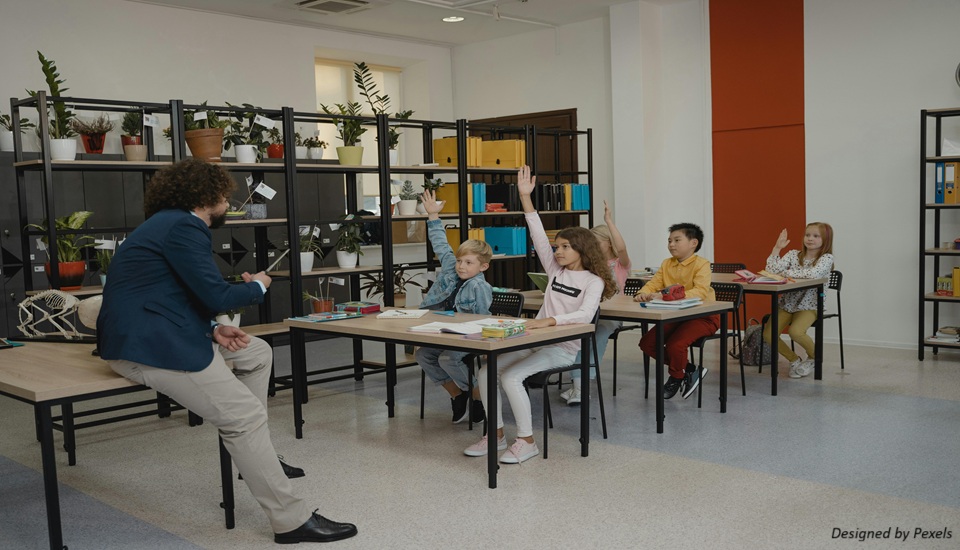
The teaching world is more competitive and global than ever. Schools and institutions today are not only looking for certified teachers but for educators who can wear multiple hats, teaching English internationally, supporting learners with special needs, and nurturing early childhood development. This is where stacking your skills comes in. By combining qualifications in TEFL, SEN, and Early Childhood Education, teachers can stand out as versatile professionals ready to thrive in diverse classrooms worldwide.
For those seeking to build a robust career in teaching, courses like a Post-Graduate Diploma in TEFL provide the foundation to integrate these specialized skills and make an impact both locally and globally.
In this blog, let’s explore why stacking these skills matters, how it creates a global advantage, and what opportunities it opens for teachers.
Why Stacking Skills Matters in Education
The concept of stacking skills is simple yet powerful. Instead of stopping at one qualification, teachers enhance their employability by adding complementary certifications. This approach shows employers that you are adaptable, future-ready, and capable of handling varied teaching scenarios.
For example:
This layered expertise makes you more valuable to schools and international institutions, especially in regions where teachers are expected to multitask across roles.
TEFL Certification: Your Global Teaching Passport
A TEFL (Teaching English as a Foreign Language) certification remains the gold standard for teaching English abroad. It opens doors to international schools, language institutes, and online teaching platforms. With advanced TEFL programs, educators not only learn classroom strategies but also explore advanced topics like curriculum design, digital pedagogy, and assessment techniques.
By pursuing an Advanced TEFL Diploma or a Post-Graduate Diploma in TEFL, teachers can strengthen their credentials, gain global recognition, and be better prepared for competitive teaching markets.
SEN Training: Supporting Diverse Learners
Special Educational Needs (SEN) training equips teachers with strategies to support learners with challenges like ADHD, autism, or dyslexia. With inclusion now a global priority, schools worldwide actively seek educators who can adapt lessons for every student.
When paired with TEFL, SEN training allows teachers to address the unique struggles ESL learners face while ensuring no student is left behind. This skill combination makes you a powerful advocate for inclusive and supportive education.
Early Childhood Education: Building Strong Foundations
The early years are the cornerstone of a child’s educational journey. Training in Early Childhood Education (ECE) helps teachers create engaging, age-appropriate activities that nurture literacy, creativity, and social-emotional skills.
When stacked with TEFL, teachers gain the ability to introduce English at formative stages, giving young learners a head start. For international schools and kindergartens, teachers who blend language instruction with child development expertise are in especially high demand.
The Global Advantage of Stacking TEFL, SEN & ECE
When combined, these three certifications provide a career advantage like no other:
Final Thoughts
In today’s global education market, stacking skills through TEFL, SEN, and Early Childhood Education is no longer optional, it’s the smartest way to build a sustainable, versatile, and rewarding career. By investing in advanced qualifications like a Post-Graduate Diploma in TEFL, educators position themselves as globally recognized professionals equipped to handle diverse classrooms.
For aspiring and experienced teachers alike, stacking certifications is more than a career strategy, it’s a commitment to lifelong learning and making a bigger impact in education worldwide.
Frequently Asked Questions (FAQs)
1. What does it mean to “stack” teaching skills?
Stacking skills means combining multiple certifications, such as TEFL, SEN, and Early Childhood Education, to expand your teaching expertise and career opportunities.
2. Why should teachers combine TEFL with SEN and Early Childhood training?
Together, these certifications make teachers more versatile—able to teach English globally, support diverse learners, and nurture early childhood development. This combination greatly increases employability in international schools.
3. Is TEFL enough on its own to teach abroad?
Yes, a TEFL certification opens doors to global teaching. However, advancing with an Advanced TEFL Diploma or Post-Graduate Diploma in TEFL, alongside SEN and ECE training, makes you more competitive and future-ready.
4. How does SEN training help in ESL classrooms?
SEN training equips teachers to support learners with special needs such as ADHD or dyslexia. Combined with TEFL, it ensures inclusive teaching where no student is left behind.
5. What career paths open up with TEFL, SEN & Early Childhood certifications?
Teachers can work in international schools, kindergartens, NGOs, online platforms, and special education programs, making them highly adaptable to global opportunities.